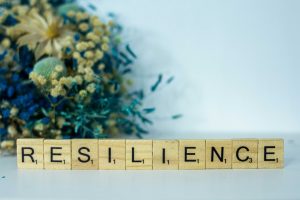Overcoming all sorts of obstacles that life throws at us requires more than just willpower; it demands resilience. This invaluable skill enables individuals to face adversities head-on and transform them into avenues for personal growth. Contrary to the belief that resilience is an inborn trait, it’s a capability that anyone can develop through targeted techniques for overcoming life’s challenges. To help you do this, we did thorough research. We gathered seven strategies to enhance your ability to cope with difficulties and enrich your overall life experience. It’s time to start turning obstacles into opportunities for growth!
Understanding Resilience: More Than Just Bouncing Back
Resilience is often visualized as a rubber band snapping back after being stretched, symbolizing how individuals recover from stress or hardship. However, resilience encompasses more than just returning to a pre-challenge state. It also involves profound personal growth and transformation.

Psychological research underscores the importance of resilience as a buffer against mental health issues and as a cornerstone of emotional well-being. This foundational resilience enables individuals to navigate the complexities of life with grace and adaptability, proving that with the right approach, anyone can nurture and develop resilience.
1. Mindfulness and Meditation: Cultivate a Resilient Mind
Mindfulness and meditation have been shown to play a significant role in building resilience. Individuals can achieve greater mental clarity and emotional balance by fostering awareness and acceptance of the present moment.
Simple techniques like focused breathing, mindful observation, and meditation can significantly lower stress levels and flexibly enhance one’s capacity to respond to challenges. Studies have consistently demonstrated the efficacy of mindfulness practices in bolstering individuals’ abilities to cope with stress, anxiety, and depression, making them essential tools in the resilience-building toolkit.
2. Emotional Awareness: Navigate Feelings with Finesse
Mastering your emotions is a critical skill in the toolkit of techniques for overcoming life’s challenges. It’s about recognizing, understanding, and managing how we feel, which, in turn, makes us more resilient in the face of adversity. Developing emotional awareness requires paying close attention to our emotional responses and learning to navigate them effectively. That might involve identifying what triggers certain emotions and finding constructive ways to express and manage these feelings.
Journaling, for example, can be a powerful tool for gaining insights into our emotional patterns and triggers. For those who find these steps challenging, seeking the guidance of experienced and knowledgeable counselors can be incredibly beneficial. Professionals can provide personalized strategies and support, helping individuals understand and work through their emotions healthily. Enhancing our emotional awareness gives us the finesse needed to tackle life’s hurdles, making it a cornerstone of building resilience.
3. Physical Wellness: The Body-Resilience Connection
There is a deep connection between physical health and psychological resilience. Regular exercise, adequate sleep, and a balanced diet are good for the body and essential for mental health and resilience.

Engaging in physical activity releases endorphins, the body’s natural mood lifters. Proper nutrition and sleep have been linked to improved cognitive function and emotional regulation. By incorporating physical wellness into their daily routine, individuals can build a stronger foundation for resilience, better equipping them to handle life’s ups and downs.
4. Positive Relationships: Having a Support System Through the Toughest Times
A strong support system is invaluable, especially when confronting some of life’s most daunting challenges, such as addiction. Recognized as one of the most significant obstacles individuals can face, addiction tests resilience at every turn. Overcoming it requires individual strength and the unwavering support of those around us. That is why the crucial role of family therapy during addiction recovery is indispensable. Family therapy provides a structured environment where individuals and their loved ones can address the complex dynamics of addiction and recovery together.
Supportive relationships—whether with family, friends, or a broader community—offer a buffer against the pressures and trials of recovery. They create a network of understanding, encouragement, and accountability, essential for sustained resilience and healing. Nurturing positive relationships is key to building a strong foundation to withstand life’s challenges.
5. Cognitive Flexibility: The Art of Adaptive Thinking
Cognitive flexibility, the ability to adapt thoughts and behaviors in response to changing circumstances, is a cornerstone of resilience. This skill enables individuals to reframe challenges, viewing them as opportunities for growth rather than insurmountable obstacles.
Techniques to enhance cognitive flexibility include challenging negative thought patterns and embracing new learning opportunities. This adaptability aids in overcoming current challenges and preparing for future adversity.
6. Techniques for Overcoming Life’s Challenges: Goal Setting and Achievement
Setting goals is a powerful strategy for navigating major life changes, such as moving to a new place, which can often lead to experiencing relocation depression. This significant shift can unsettle anyone, making it crucial to establish new objectives to find your footing again. Setting clear and achievable goals creates a sense of direction during this turbulent time. These goals can range from exploring your new community to establishing a routine that includes connecting with new people or finding local support groups.
Celebrating every achievement, no matter how small plays a vital role in combating the feelings of disconnection and loss that come with relocation. Whether making a new friend or simply learning your way around, each success boosts your confidence and reinforces your ability to adapt. This approach not only helps mitigate relocation depression but also strengthens your resilience, making you better prepared for future challenges.
7. Stress Management Skills: Maintaining Calm Amidst Chaos
Effective stress management is crucial for building and maintaining resilience. Techniques such as deep breathing, time management, and setting boundaries can help individuals manage stress more effectively.

By identifying personal stressors and developing tailored stress management plans, people can mitigate the impact of stress on their well-being. This proactive approach to stress management ensures that individuals are equipped to navigate life’s stresses with grace and resilience.
Strengthening Resilience, Overcoming Challenges
Mastering techniques for overcoming life’s challenges is essential for personal growth and resilience. Whether it’s navigating the complexities of just starting dating after divorce or facing any other significant life transition, these strategies offer a foundation for enduring and thriving amidst adversity. Remember, seeking professional help and providing tailored support and guidance are vital steps. By embracing these techniques and the assistance of experienced counselors, individuals can enhance their resilience, turning challenges into stepping stones for success.
Photos used:
https://unsplash.com/photos/woman-sleeping-on-blue-throw-pillow-s8PTWCu5maQ
https://unsplash.com/photos/brown-wooden-blocks-on-white-surface-hMmsCFYJBb8
https://unsplash.com/photos/a-scrabble-type-block-spelling-the-word-resilince-4lA1sDFr8Y8
https://www.pexels.com/photo/woman-girl-animal-dog-4056535/
Author’s bio:
Joseph Carfi is the Director of Marketing and Business Development at Little Creek Recovery, a rehabilitation center focused on providing comprehensive addiction treatment and recovery services. With a keen focus on developing strategies that connect individuals with the support and care they need, Joseph is dedicated to making a meaningful impact in the lives of those seeking to overcome life’s challenges. His work at Little Creek Lodge underscores his commitment to promoting wellness, resilience, and recovery within the community.



